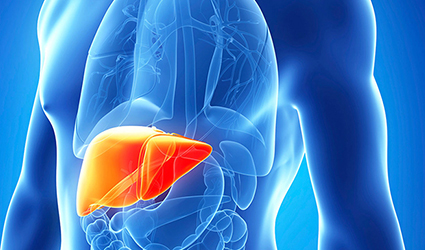Treatments for Hepatitis
July 13, 2018
Source: HealthLine
 998
998

Hepatitis is defined as liver inflammation usually caused by the hepatitis virus. There are of 5 types of hepatitis: A, B, C, D and E. At times, our own immune system will attack the liver, which is termed as autoimmune hepatitis disease. Common symptoms include fever, jaundice, fatigue, abdominal pain, dark urine, pale stool, loss of appetite and weight loss.
Treatment options vary according to the type of hepatitis and its condition whether it is acute or chronic.
Hepatitis A
Since Hepatitis A is a short-term illness, it doesn’t require specific treatment. Just bed rest is recommended if there is a great deal of discomfort. In case of vomiting and diarrhea, consult your doctor and be sure to keep up proper hydration and nutrition. Two series of hepatitis A vaccinations between the age group of 12-18 months are available as a preventive measure. For adults, this vaccine can be administered with the hepatitis B vaccine.
Hepatitis B
Hepatitis B is divided into 2 types: acute and chronic. Acute hepatitis B doesn’t require specific treatment. But chronic hepatitis B should be treated with antiviral drugs which must be administered continuously for a few months or even years.
Three series of hepatitis B vaccinations should be administered within the first 6 months of childhood as a preventative measure.
Hepatitis C
Both acute and chronic types of hepatitis C can be treated with antiviral medications. However, patients who suffer from cirrhosis (liver scarring) could opt for liver transplantation.
At present, there is no vaccine for hepatitis C.
Hepatitis D
There is no antiviral drug available for hepatitis D treatment.
Hepatitis D can be prevented by administering the hepatitis B vaccine.
Hepatitis E
There is no specific treatment for hepatitis E. It mostly cured on its own by taking rest and consuming plenty of fluids with proper diet and avoidance of alcohol.
Autoimmune hepatitis
Corticosteroids are essential for the treatment of autoimmune hepatitis.
This along with various other immune-suppressing drugs can be administered for treatment.
By DduRead more on
- Things to Know before Buying Newborn Baby Incubators March 31, 2022
- Highly Resistant Food Poisoning Bug Responds to Antibiotics September 6, 2018
- Smartphone Based Diagnosis to Identify Mosquitoes Transmitting Infection September 5, 2018
- 3 Natural Plant Extracts Manufacturers on Drugdu.com September 4, 2018
- Shenzhen Chuanggan – Health Assessment Facility Supplier September 4, 2018
your submission has already been received.
OK
Subscribe
Please enter a valid Email address!
Submit
The most relevant industry news & insight will be sent to you every two weeks.



